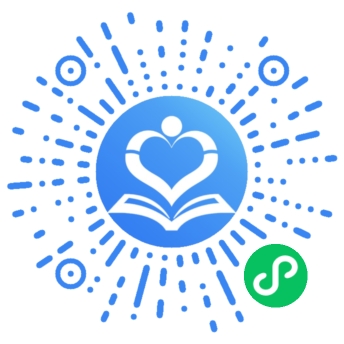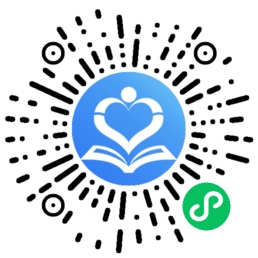中共党史专业介绍
中国共产党历史专业属于法学门类,政治学一级学科,该专业主要研究中国共产党的历史发展、理论政策与实践,探索中国共产党领导中国革命、建设、改革和党的建设的历史经验教训,揭示中国共产党执政规律、社会主义建设规律、人类社会发展规律。
英语单词分类 轻松记单词
use
英[juːs] 美[juːs]
"he warned against the use of narcotic drugs"
"skilled in the utilization of computers"
"the function of an auger is to bore holes"
"ballet is beautiful but what use is it?"
"he put his knowledge to good use"
"patrons have their uses"
"the consumption of energy has increased steadily"
"owls have nocturnal habits"
"she had a habit twirling the ends of her hair"
"long use had hardened him to it"
"his manipulation of his friends was scandalous"
"we were given the use of his boat"
"use your head!"
"we only use Spanish at home"
"I can't use this tool"
"Apply a magnetic field here"
"This thinking was applied to many projects"
"How do you utilize this tool?"
"I apply this rule to get good results"
"use the plastic bags to store the food"
"He doesn't know how to use a computer"
"She uses drugs rarely"
"The legislature expended its time on school questions"
"She uses her influential friends to get jobs"
"The president's wife used her good connections"
"apply a principle"
"practice a religion"
"use care when going down the stairs"
"use your common sense"
"practice non-violent resistance"
"She used to call her mother every week but now she calls only occasionally"
"I used to get sick when I ate in that dining hall"
"They used to vacation in the Bahamas"
动词用法(VERB useS)
1.用;使用;应用;运用
If youuse something, you do something with it in order to do a job or to achieve a particular result or effect.
e.g. Trim off the excess pastry using a sharp knife...
用一把快刀切去多余的饼皮。
e.g. He had simply used a little imagination...
他只不过是用了一点点想象力。
2.耗尽;耗掉
If youuse a supply of something, you finish it so that none of it is left.
use的反义词
e.g. You used all the ice cubes and didn't put the ice trays back...
你把所有的冰块都用完了,又不把冰格放回去。
e.g. They've never had anything spare — they've alwaysused it all.
他们从没有任何备用的东西——他们总是把什么都用得一干二净。
3.服(药,尤指毒品)
If someoneuses drugs, they take drugs regularly, especially illegal ones.
e.g. He denied he had used drugs...
他否认自己吸过毒。
e.g. You'll find that most people that don'tuse heroin don't like people that do.
你会发现绝大多数不吸海洛因的人都不喜欢吸食者。
4.用(洗手间或卫生间)(礼貌说法)
You can say that someoneuses the toilet or bathroom as a polite way of saying that they go to the toilet.
e.g. Wash your hands after using the toilet...
便后要洗手。
e.g. He asked whether he coulduse my bathroom.
他问是否可以用我的卫生间。
5.使用(单词或表达方式)
If youuse a particular word or expression, you say or write it, because it has the meaning that you want to express.
use的翻译
e.g. The judge liked using the word 'wicked' of people he had sent to jail...
这个法官喜欢使用“邪恶”一词来形容被他判罪入狱的人。
e.g. When Johnson talks about cuts, he uses words like 'target price' and 'efficiency payments'.
约翰逊谈起降价时,会使用“目标价位”和“效率支付”之类的字眼。
6.用(名字);自称
If youuse a particular name, you call yourself by that name, especially when it is not the name that you usually call yourself.
e.g. Now Iuse a false name if I'm meeting people for the first time...
现在和初次见面的人交往时我会用假名。
e.g. I didn't want touse my married name because we've split.
我不想用我的夫姓,因为我们已经离婚了。
7.(为自身利益)利用(别人)
If you say that someoneuses people, you disapprove of them because they make others do things for them in order to benefit or gain some advantage from it, and not because they care about the other people.
e.g. Be careful she's not just using you...
当心她不只是在利用你。
e.g. Why do I have the feeling I'm being used again?
为什么我感觉又被利用了?
8. see also: used
名词用法(NOUN useS)
1.用;使用;应用;运用
Youruse of something is the action or fact of your using it.
e.g. The treatment does not involve theuse of any artificial drugs.
这种治疗不会使用任何人工合成药物。
e.g. ...research related to microcomputers and theiruse in classrooms...
关于微型电脑及其课堂使用的研究
2.需要;功能;使用价值
If you havea use for something, you need it or can find something to do with it.
use是什么意思
e.g. You will no longer have ause for the magazines...
你再也用不着这些杂志了。
e.g. They both loved the fabric, but couldn't find ause for it.
他们都很喜爱这块布,可是不知道拿来做什么好。
3.用途;用处
If something has a particularuse, it is intended for a particular purpose.
e.g. Infrared detectors have many uses...
红外探测器有多种用途。
e.g. It's an interesting scientific phenomenon, but of no practicaluse whatever...
这是一种有趣的科学现象,但没什么实用价值。
4.使用权;运用能力
If you have theuse of something, you have the permission or ability to use it.
use在线翻译
e.g. She will have theuse of the car one night a week.
她每周有一个晚上会用车。
e.g. ...young people who at some point in the past have lost theuse of their limbs...
曾经一度手脚失去功能的年轻人
5.(单词的)意义,用法
Ause of a word is a particular meaning that it has or a particular way in which it can be used.
use在线翻译
e.g. There are new uses of words coming in and old uses dying out.
单词总有新用法出现,也有旧用法慢慢被淘汰。
6.(名字的)使用
Youruse of a particular name is the fact of your calling yourself by it.
e.g. Police have been hampered by Mr Urquhart'suse of bogus names.
厄克特先生使用了假名,警方的调查因此受阻。
7.供…使用
If something isfor the use of a particular person or group of people, it is for that person or group to use.
e.g. The leisure facilities are there for theuse of guests...
这些休闲设施是供客人使用的。
e.g. He raises crops mainly for theuse of his family.
他种农作物主要是为了家庭自用。
8.有好处
If you say that being something or knowing someonehas itsuses, you mean that it makes it possible for you to do what you otherwise would not be able to do.
e.g. Being a hospital Sister had its uses.
在医院当护士有它的好处。
9.在使用/不再使用
If something such as a technique, building, or machine isin use, it is used regularly by people. If it has goneout of use, it is no longer used regularly by people.
use的翻译
e.g. ...the methods of making Champagne which are still inuse today...
至今仍在用的香槟酿制法
e.g. The site has been out ofuse for many years.
这个地方已经闲置多年。
10.使用;利用
If youmake use of something, you do something with it in order to do a job or achieve a particular result or effect.
e.g. Not all nursery schools makeuse of the opportunities open to them.
并不是所有的托儿所都能抓住他们面临的机会。
e.g. ...makinguse of the same bottle time after time.
多次重复使用同一个瓶子
11.没有用处;无益
You use expressions such asit's no use ,there's no use, andwhat's the use to indicate that a particular action will not achieve anything.
e.g. It's nouse arguing with a drunk...
跟一个醉汉争论是没有用处的。
e.g. There's nouse you asking me any more questions...
你问我再多的问题也没有用。
12.没用;行不通
If you sayit's no use, you mean that you have failed to do something and realize that it is useless to continue trying because it is impossible.
e.g. It's nouse. Let's hang up and try for a better line.
打不通。挂掉吧,找一条更好的线打吧。
13.有用/没用
If something or someone isof use, they are useful. If they areno use, they are not at all useful.
e.g. The contents of this booklet should be ofuse to all students...
这本小册子的内容应该会对所有的学生都有用处。
e.g. I'm sorry, I've been nouse to you.
对不起,我一点儿忙也没帮上。
1.
1. 应用:ITU的IDI Report是依资通讯的近用权(access)、应用(use)及技能(skills)三大指标,评估全球154个国家地区的资通讯竞争力状况. 日前ITU公布2007年的调查结果指出,台湾竞争力排名全球第25. 对此,我国传播通讯主管机关NCC指出,
2.use:utilized to erase; 滤去
3.use:ultra speed exposure; 超高速曝光
4.use:ubi soft entertainment; “无比”软件娱乐公司(美国,出品MMX软件包)
5. use的翻译
5.use:user software engineering; 用户软件工程
The present phone boxes will go out of use next year.
现有的公共电话亭明年就不再使用了。
He exemplified the use of the word.
他举例证明那个词的用法。
This use is less common in British English.
这种用法在英式英语中不多见。
He put the use of his house at my disposal.
他将房子的使用权交付给我随意处理。
He makes full use of the facts he observes.
他充分运用自己所观察到的事实。
The phrase has been in wide use from before 1950's.
这个词组从五十年代前起就被广泛运用了。
He tried to use the scandal to blackmail me.
他想利用这种丑闻敲诈我。
They use a computer system to organize their data.
他们利用一个电脑系统整理数据。
Rejection is not always bad, and if you use it properly, it just may go away.
拒绝并不都是不好的,如果你能够正确地对待它,那么时间长了,“拒绝”的情况会自动消失。
You should only use this door in an emergency.
在紧急情况下才能使用这扇门。
The company now uses a computer to do all its account.
这家公司现在使用电脑来计算所有的帐目。
She's been using since she was 13.
她从13岁起就吸毒。
Trim off the excess pastry using a sharp knife...
用一把快刀切去多余的饼皮。
He had simply used a little imagination...
他只不过是用了一点点想象力。
You used all the ice cubes and didn't put the ice trays back...
你把所有的冰块都用完了,又不把冰格放回去。
They've never had anything spare 'u2014 they've always used it all.
他们从没有任何备用的东西——他们总是把什么都用得一干二净。
He denied he had used drugs...
他否认自己吸过毒。
You'll find that most people that don't use heroin don't like people that do.
你会发现绝大多数不吸海洛因的人都不喜欢吸食者。
Wash your hands after using the toilet...
便后要洗手。
He asked whether he could use my bathroom.
他问是否可以用我的卫生间。
The judge liked using the word 'wicked' of people he had sent to jail...
这个法官喜欢使用“邪恶”一词来形容被他判罪入狱的人。
When Johnson talks about cuts, he uses words like 'target price' and 'efficiency payments'.
约翰逊谈起降价时,会使用“目标价位”和“效率支付”之类的字眼。
Now I use a false name if I'm meeting people for the first time...
现在和初次见面的人交往时我会用假名。
I didn't want to use my married name because we've split.
我不想用我的夫姓,因为我们已经离婚了。
Be careful she's not just using you...
当心她不只是在利用你。
Why do I have the feeling I'm being used again?
为什么我感觉又被利用了?
The treatment does not involve the use of any artificial drugs.
这种治疗不会使用任何人工合成药物。
...research related to microcomputers and their use in classrooms...
关于微型电脑及其课堂使用的研究
You will no longer have a use for the magazines...
你再也用不着这些杂志了。
They both loved the fabric, but couldn't find a use for it.
他们都很喜爱这块布,可是不知道拿来做什么好。
Infrared detectors have many uses...
红外探测器有多种用途。
It's an interesting scientific phenomenon, but of no practical use whatever...
这是一种有趣的科学现象,但没什么实用价值。
She will have the use of the car one night a week.
她每周有一个晚上会用车。
...young people who at some point in the past have lost the use of their limbs...
曾经一度手脚失去功能的年轻人
There are new uses of words coming in and old uses dying out.
单词总有新用法出现,也有旧用法慢慢被淘汰。
Police have been hampered by Mr Urquhart's use of bogus names.
厄克特先生使用了假名,警方的调查因此受阻。
The leisure facilities are there for the use of guests...
这些休闲设施是供客人使用的。
He raises crops mainly for the use of his family.
他种农作物主要是为了家庭自用。
Being a hospital Sister had its uses.
在医院当护士有它的好处。
...the methods of making Champagne which are still in use today...
至今仍在用的香槟酿制法
The site has been out of use for many years.
这个地方已经闲置多年。
Not all nursery schools make use of the opportunities open to them.
并不是所有的托儿所都能抓住他们面临的机会。
We used the seal's fur for coats.
我们用海豹皮做大衣。
She decided to use it for gifts.
她决定用它作礼物。
Castor oil is used for medicine.
蓖麻油可作药用。
Musk is used for perfume and stimulant.
麝香可以用作香料和兴奋剂。
It can also be used for food.
它也可食用。
We used up a whole roll of film.
整整一卷胶片我们都用完了。
Jack used up his last dollar to see the movie.
杰克为看电影把他最后一元钱也花掉了。
By this time he had used up all his savings.
到这时,他的存款已全部用完。
There isn't any more coal, it's all been used up.
没有煤了,全都烧光了。
All those I had are used up.
我所有的全用光了。
You can adapt the barn for use as a garage.
你可以把谷仓改作车库。
Many city vehicles have been adapted for use as school buses.
许多市内交通车都被改造为校用专车。
These tractors have been adapted for use in very cold climate.
这些拖拉机经过改造已能在严寒气候下使用了。
The newly built railway line was brought into use not long ago.
新建成的铁路不久前通车了。
It is a pity to throw something away if it can be put to use.
如果把能够使用的东西扔掉,那是很可惜的。
The waste, after being filtered, was put to good use.
废水经过过滤后,得到了很好的利用。
He brushed away the dust from the old machine and discovered that it could still be put to use after some minor repairs.
他把旧机器上的灰尘扫去后,发现这部机器稍加修理,还可使用。
All other Themes that careless Minds invite, Are worn with use.
出自:DrydenA handworked chaff-box was in almost daily use on every large farm.
出自:Essex ReviewTheir deliberate use of murder and plastic bombs.
出自:GuardianWe knowe that the lawe is god, yf a man vse it lawfully.
出自:Bible (Tyndale): 1 Tim.请求帮助
A:May Iuse your telephone?
可以借一下电话吗?
B:Sugar, please.
好的。请用。
请求帮助
A:Could I possiblyuse your bathroom?
我能用一下您的洗手间吗?
use
B:Of course.
当然。
工作环境
A:What’s the matter?
怎么了?
use在线翻译
B:How do Iuse this (copy machine/ fax machine/ hole-puncher)?
这个(复印机/传真机/打孔机)怎么用?
Will there be any use for another copy of the book?
这本书还需要另外再影印一份吗?
I have no use for such things.
我不需要这些东西了。
This book seems to be (of) no use to you.
I wonder if this book will be (of) any use to you.
He used to do it.
他习惯那样做。
He always used to come by tram.
他总习惯坐有轨电车来。
He used to live here.
他一直住在这里。
People used to think that the earth was flat.
人们过去总认为地球是平面的。
He said he had used to come by tram.
used he to come by tram?
People used to think that the earth was flat.(持续的)
She would see him every Sunday.(重复的)
He used to ask me about my studies.
只表达了一个事实。
Facial recognition technology (人脸识别技术) is widelyused today.
面部识别技术在今天得到了广泛的应用。
2020重庆市B卷
More and more people have startedusing solar energy to power(给......供电) their homes.
越来越多的人开始使用太阳能为他们的家庭供电。
2020长沙市卷
The apps suggest that kids from 8 to 13 canuse the cards.
这些应用程序建议8到13岁的孩子可以使用这些卡片。
2020连云港市卷
Here are other examples of proverbs that Americansuse.
下面是美国人使用的谚语的其他例子。
2019河南省卷
It includes theuse of words to send information.
它包括使用文字发送信息。
2018山西省卷
Teenagers oftenuse new slang-informal words and phrases-to talk to their friends.
青少年经常使用新的俚语——非正式的单词和短语——和他们的朋友交谈。
2018贵阳市卷
Data collected from the device could beused to recognize different participants based on how they typed, with very low error rates.
从该设备收集的数据可以根据不同的参与者的打字方式来识别他们, 错误率非常低。
2019全国卷1
Every day he makes sure that fresh vegetables and high quality oil areused for cooking.
他每天都确保用新鲜的蔬菜和高质量的油来烹饪。
2016全国卷1
Ten years after my chess class with Ashley, I'm still putting touse what he taught me: "The absolute most important skill that you learn when you play chess is how to make good decisions."
在我和阿什利上象棋课十年后, 我仍然在运用他教给我的东西:"下棋时,你学到的最重要的技能就是如何做出好的决定。
2018全国卷1
Did you check theused book section here?
你检查过这里的二手书区吗?
2017全国卷2
How do we train ourselves to help them live with, need, anduse less?
我们如何训练自己来帮助他们生活, 使用更少满足所需?
2018全国卷3
As many people hit middle age, they often notice that their memory and mental clarity are not what theyused to be.
随着许多人步入中年,他们经常注意到自己的记忆力和思维清晰程度不再是过去那样了。
2014英语一
We suddenly can't remember an old acquaintance's name, or the name of an old band weused to love.
我们突然想不起一个老熟人的名字,或者一个我们曾经热爱的老乐队的名字。
2014英语一
Being average just won't earn you what itused to.
平庸不会让你获得过去那样的收入。
2013英语二
The bestuses of 3D printers and virtual reality haven't been invented yet.
3D打印机和虚拟现实的最佳用途还没有发明出来。
2018英语一
It is easy for children to getused to blank expressions.
孩子们很容易习惯空白的表情。
2017英语二
四川高考志愿填报方式:1、进入页面;2、修改密码;3、填报须知;4、查看个人基本信息;5、志愿类别选择;6、填写志愿和修改志愿;7、填写或修改志愿结束后,单击页面底部的[保存并提交]按钮,则所填写的志愿数据将得到保存,保存即表示该批次志愿已经提交。
高考成绩一般都会在考后15天左右公布,不过不同省份查询时间有所差别,具体以各省份发布时间为准。并且全国各省份高考成绩公布时间有所不同,不全在同一天,但绝大部分省市都集中在6月24日、6月25日两天公布高考成绩,有些省份会更早一点。
中国共产党历史专业属于法学门类,政治学一级学科,该专业主要研究中国共产党的历史发展、理论政策与实践,探索中国共产党领导中国革命、建设、改革和党的建设的历史经验教训,揭示中国共产党执政规律、社会主义建设规律、人类社会发展规律。
小学教育专业属于教育学门类、教育学一级学科,是我国教师教育体系的重要组成部分。小学教育专业坚持学高为师、身正为范。其主要培养德、智、体、美、劳全面发展,具备专业化的小学教师素养,能在小学及相关行业从事教育、教学和管理等方面工作的复合型人才。
钢琴伴奏作为一门中国普通高等学校的专科专业,属于文化艺术大类中的表演艺术类,修业年限为三年。该专业的目的是培养了解钢琴伴奏的基本理论知识和方法,具备较好的音乐创造能力,从事钢琴伴奏、艺术指导、钢琴演奏、教学辅导等工作的高素质技术技能人才。
影视多媒体技术专业是一门专科专业,属于新闻传播大类中的广播影视类。开设该专业的目的是培养全面发展,具有良好职业道德和人文素养,掌握影视多媒体技术基本知识和技能,具备影视后期制作、影视包装设计能力,从事影视编辑的高素质技术技能人才。
虚拟现实技术应用是一门互联网专业,属于电子与信息大类中的计算机类,基本修业年限为三年。专业主要研究仿真技术与三维计算机图形技术等方面基本知识和技能,具备虚拟现实软硬件平台设备搭建,从事虚拟现实、开发、调试等工作的高素质技术技能人才。
更多内容
关注微信小程序
学路英语小程序
 微信扫一扫,加入小程序
微信扫一扫,加入小程序
学路学习小程序
 微信扫一扫,加入小程序
微信扫一扫,加入小程序
学路高考小程序
 微信扫一扫,加入小程序
微信扫一扫,加入小程序
学路学习APP
 扫一扫,下载app
扫一扫,下载app